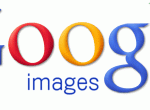I am fascinated by this story in which a person managed to persuade at least five television stations to put him on the air to demonstrate his prowess as a yo-yo champion. I understand that producers for morning shows have to fill their air time and I understand the desire to fill that air time with a yo-yo champion. That is something unusual and could be entertaining.
However, I am baffled by the fact that these stations apparently did no research before letting this guy go on live television. Obviously, this did not work out well for the stations. In one instance:
At WISC in Madison, Strasser was booked and ready to go on “News 3 This Morning.” But things took a strange turn when Strasser said on the air, “Do you want to hear a scary story?”
Colin Benedict, the station’s news director, said the anchors were confused. They thought a yo-yo champion was supposed to be on.
Instead, Strasser started talking about his personal story of alcohol and drugs.
And the yo-yo tricks? Benedict said Strasser tried one but the yo-yo fell apart and onto the studio floor.
That was enough for WISC. The anchors took over and Strasser was off the air.
What did this guy do to get on the air? He sent the stations an email:
In each case, producers at the television stations received an e-mail from Joe Guehrke, saying he represented Strasser and ZimZam Yo-Yo, “the world’s first ‘green’ ” nonprofit toymaker.
Guehrke told the stations that Strasser, whom he called a “master yo-yo artist,” would be in their area to bring his environmental message and “zany sense of humor” to kids.
Guehrke wrote in one e-mail to a TV station that Strasser was a dynamic talk-show guest who comes “equipped with a roster of amazing yo-yo tricks, juggling and fun tips about how kids and adults alike can take small steps to make the world a greener place.”
The e-mail solicitation stated that Strasser was a runner-up for Rookie of the Year in 1995, grand champion at the Pensacola Regional and was nominated for the Walt Greenberg Award in 2000.
There is no Walt Greenberg Award in yo-yo, and there is no evidence Pensacola ever hosted a yo-yo tournament or that Strasser won a rookie of the year award.
Maybe I am strange, but when I am contacted by someone or some company that I have never heard of before, the first thing I do is Google that person.
According to the information in the news story, it appears that a reasonable web search would have revealed that this guy was not who or what he claimed to be. If you can’t find a reference to the Walt Greenberg Award anywhere, that should be a pretty good clue that it does not exist.
The internet is a powerful tool and it is good for things other than legal research and Twitter. Keep that in mind. There is nothing wrong with listening to what people have to say. However, it is someone that you have never dealt with before, take the two minutes required to run a Google search and see if the information you find (or do not find) supports what the person is telling you.
Remember STFW. (If you don’t know what that means, Google it).
 That features all work great , but I like it when they do something new and cool.
That features all work great , but I like it when they do something new and cool.